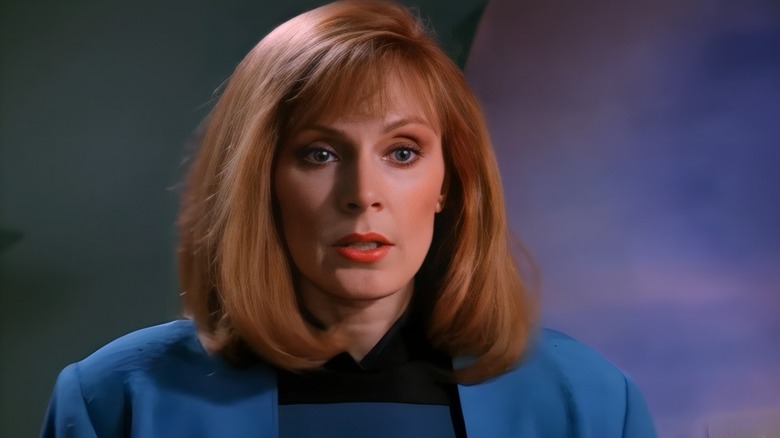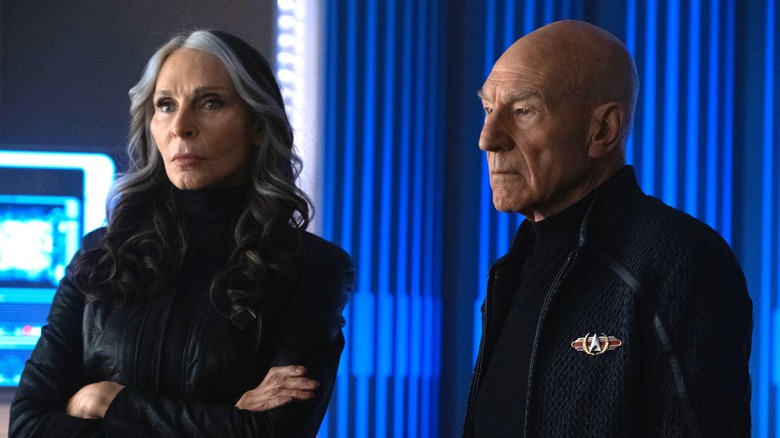Star Trek: Gates McFadden Blames Sexism For Beverly Crusher's TNG Disappearance
The "Star Trek" universe claims that all societal problems are solved, but that didn't seem to matter following the first season of the fan-favorite series, "The Next Generation." After playing Dr. Beverly Crusher for one season, Gates McFadden was effectively fired for a reason that would not fly today.
"It was a different time. They wanted women to look pretty and be a certain way, but they really didn't want you to, you know, speak up as if you were their equal, I think," McFadden remarked offhandedly on a recent episode of Michael Rosenbaum's podcast, "Inside of You." Coming from the theater world with little experience in Hollywood politics, the actor had no qualms about speaking her mind when the situation called for it.
"Star Trek: The Next Generation" was extremely male-driven, and many storylines reflected that. McFadden described one episode she had an issue with, where a planet full of women fawn over Riker (Jonathan Frakes) simply because he is a man. This candidness allegedly inspired the ire of producer Maurice Hurley. McFadden couldn't confirm the sequence of events for sure, but surmises that she was pushed out because the producer disliked her. As her tenure on the rest of "The Next Generation" and "Picard" have proven, however, she would have the last laugh.
Gates McFadden returned to Star Trek in full force
Gates McFadden wouldn't have to wait too long to get the respect she deserved. Due to fan outcry, the actor returned in "Star Trek: The Next Generation" Season 3. "I was blown away when, in the second season, how many letters I got from fans," McFadden told What's On. "Thousands of letters and people who said they loved the character and loved me. I had been in conflict with one of the male writer-producers about certain things I thought were sexist." The actor stuck with "Star Trek: TNG" for the rest of the series, even after her son Wes (Wil Wheaton) left the show. Whether the producers wanted to admit it or not, McFadden was a valued part of the series and an obvious choice to bring back with the rest of the Enterprise crew in "Star Trek: Picard." Patrick Stewart, who had been vocal about his distaste for McFadden's firing, pushed for her return.
"I know Patrick [Stewart] had wanted me back because he was the first person to call me and ask if I'd consider it," McFadden recalled. This new generation of "Star Trek" allowed female characters to interact in a way they hadn't previously. Characters like Beverly and Deanna Troi (Marina Sirtis) rarely had cause to have conversations with each other, and even when they did, their talks certainly failed the Bechdel test. With Paramount+ continuing to release new content, it gives more credibility to the fact that "Star Trek" can tell stories worthy of the Federation's society.

